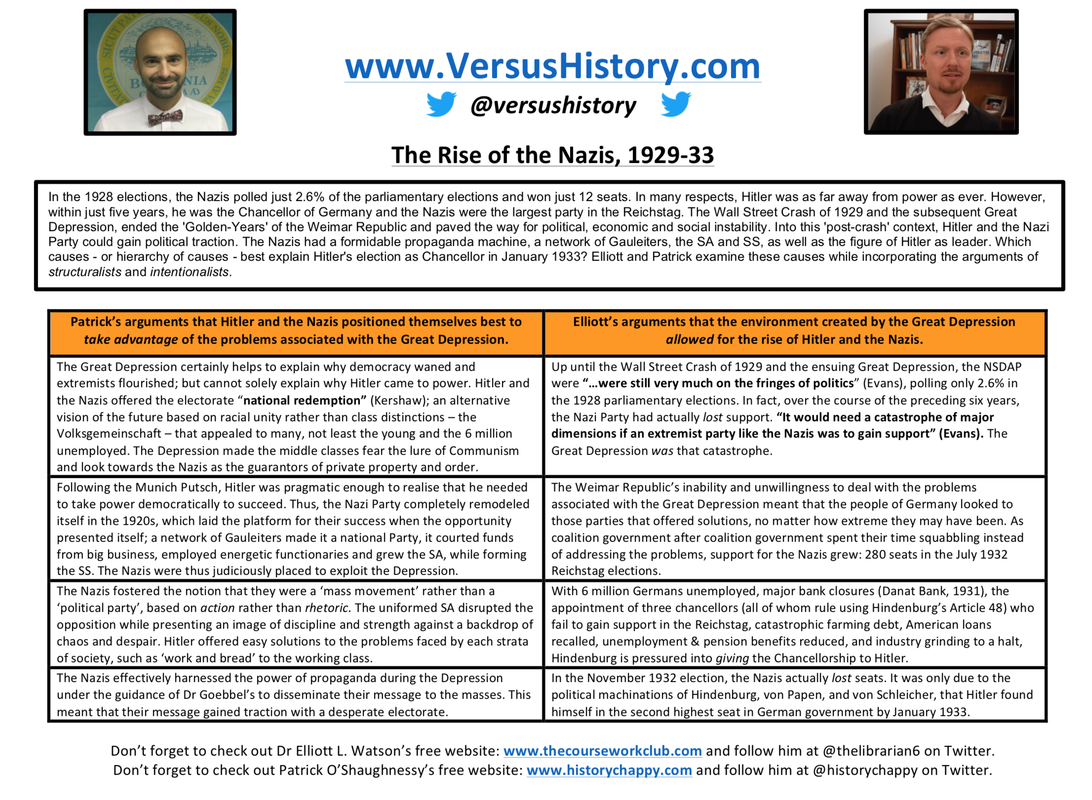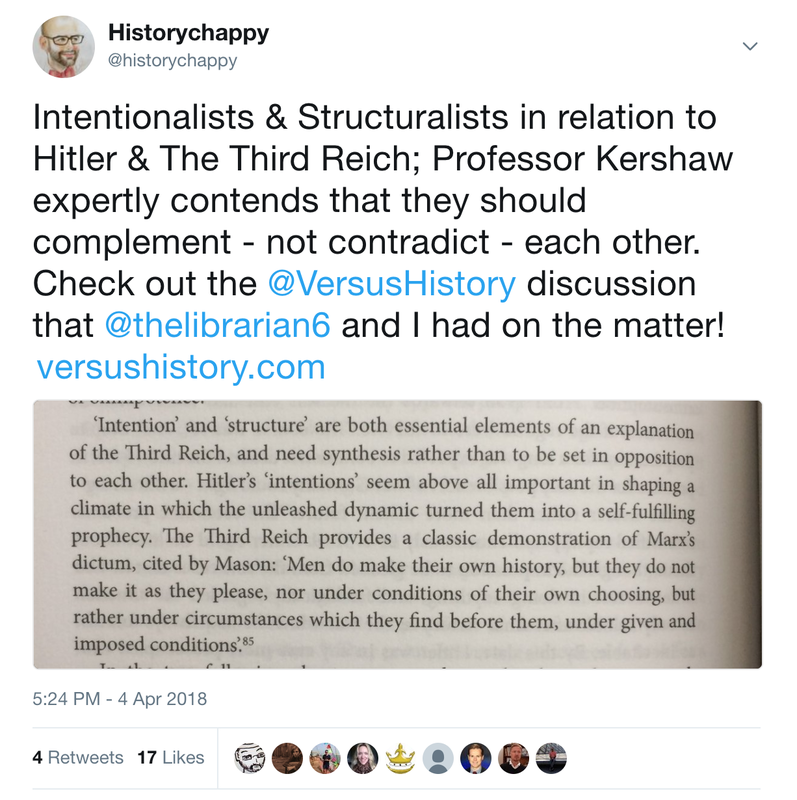|
Podcast #16 was a real game changer for the Versus History project. Both Elliott and I really enjoyed researching it, as we always do. We dug deep into the historiographical vaults, drew on our pre-existing knowledge and sought the counsel of those with sagely wisdom on the topic. There was little left in the work of Kershaw, Evans, Hinton, Bullock and Roberts that we didn't consider. However, there is nothing particularly revolutionary about any of that. Nor was it the first time that we had sat down in our favourite Arabic cafe in Bahrain to discuss matters historical. After all, we never say no to a spot of Moroccan mint tea when researching and debating! The turning point for the project came not so much in the method of research than it did in the substantive conclusions at which we arrived. Versus History debate until this point had relied almost exclusively on assuming contrasting standpoints on key issues of historical interest. This had proved to be largely successful for the debates that we had hitherto conducted; Field Marshal Haig, the Cold War, Malcolm X, etc. Indeed, it proved a solid conceptual platform from which to launch our parallel enquiries and deliver a debate. The key substantive results are outlined below, which can be downloaded free, of course. I attempted to argue from what was essentially a typically Intentionalist perspective, that it was ultimately the actions of Hitler and the Nazis that provided the crucial reason for them rising to power by 1933. Contrastingly, Elliott argued from the perspective of a Structuralist, contending that it was ultimately the context created by the Great Depression that provided the pivotal reason for Hitler's ascent to the Chancellorship by January 1933. These are both arguments that we have seen many times at GCSE and Post-16 level. What was really enlightening about this debate was that our findings complemented - rather than explicitly contradicted - each other. The consensus was that whilst Hitler would never have risen to the Chancellorship without the context of the Great Depression, he would never have been able to seize the unique opportunity presented by the Depression if had not actively prepared the Party for the opportunity in the 1920s and then seized it with campaigning, projecting an image of a 'mass movement', propaganda, etc. Perhaps more interesting still, the conclusion that 'Intentionalist' and 'Structuralist' perspectives are two sides of the same coin had deep roots in the historical scholarship of Ian Kershaw, as outlined below; Podcast #16 continues to be one of the most popular Versus History debates available through the iTunes medium. The findings demonstrate that occasionally, we need to move beyond cognitive binaries if we are to have an historical debate that offers a rigorous and meaningful discussion based on rich historiography.
Here's to more of the same! You can download Versus History Podcast #16 here. Thanks for reading. Patrick (@historychappy)
1 Comment
John Martins
15/4/2018 10:53:21
Enjoyed reading this, Patrick. I have just finished reading the work of Kershaw on Hitler myself, so was really interested to read what you had to say on this topic. The inclusion of the structuralist v intentionalist viewpoint in the Podcast is nicely summarised here. More of the same, please?!
Reply
Leave a Reply. |
Categories
All
Archives
April 2024
|


 RSS Feed
RSS Feed